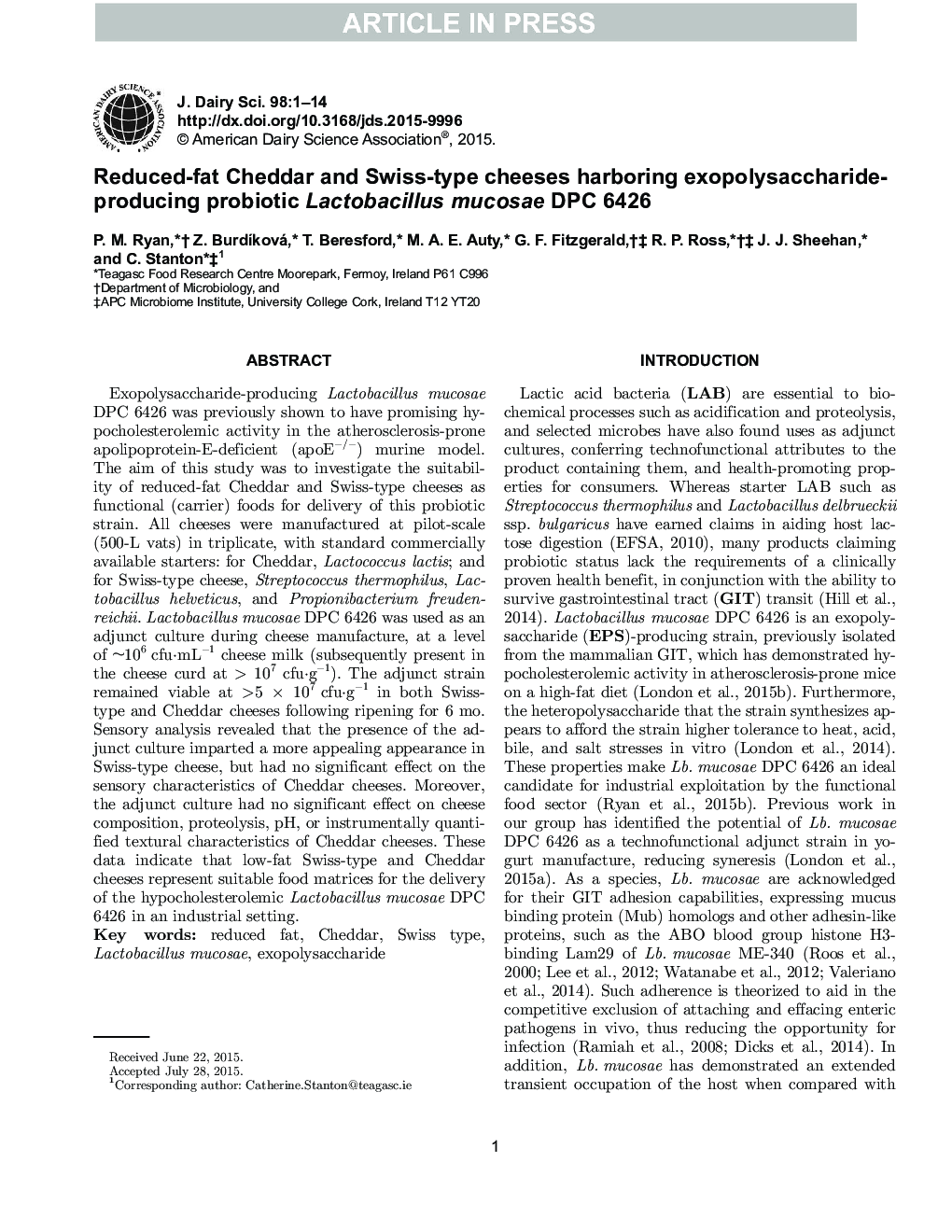| Article ID | Journal | Published Year | Pages | File Type |
|---|---|---|---|---|
| 10973390 | Journal of Dairy Science | 2015 | 14 Pages |
Abstract
Exopolysaccharide-producing Lactobacillus mucosae DPC 6426 was previously shown to have promising hypocholesterolemic activity in the atherosclerosis-prone apolipoprotein-E-deficient (apoEâ/â) murine model. The aim of this study was to investigate the suitability of reduced-fat Cheddar and Swiss-type cheeses as functional (carrier) foods for delivery of this probiotic strain. All cheeses were manufactured at pilot-scale (500-L vats) in triplicate, with standard commercially available starters: for Cheddar, Lactococcus lactis; and for Swiss-type cheese, Streptococcus thermophilus, Lactobacillus helveticus, and Propionibacterium freudenreichii. Lactobacillus mucosae DPC 6426 was used as an adjunct culture during cheese manufacture, at a level of ~106 cfu·mLâ1 cheese milk (subsequently present in the cheese curd at > 107 cfu·gâ1). The adjunct strain remained viable at >5 Ã 107 cfu·gâ1 in both Swiss-type and Cheddar cheeses following ripening for 6 mo. Sensory analysis revealed that the presence of the adjunct culture imparted a more appealing appearance in Swiss-type cheese, but had no significant effect on the sensory characteristics of Cheddar cheeses. Moreover, the adjunct culture had no significant effect on cheese composition, proteolysis, pH, or instrumentally quantified textural characteristics of Cheddar cheeses. These data indicate that low-fat Swiss-type and Cheddar cheeses represent suitable food matrices for the delivery of the hypocholesterolemic Lactobacillus mucosae DPC 6426 in an industrial setting.
Keywords
Related Topics
Life Sciences
Agricultural and Biological Sciences
Animal Science and Zoology
Authors
P.M. Ryan, Z. BurdÃková, T. Beresford, M.A.E. Auty, G.F. Fitzgerald, R.P. Ross, J.J. Sheehan, C. Stanton,
